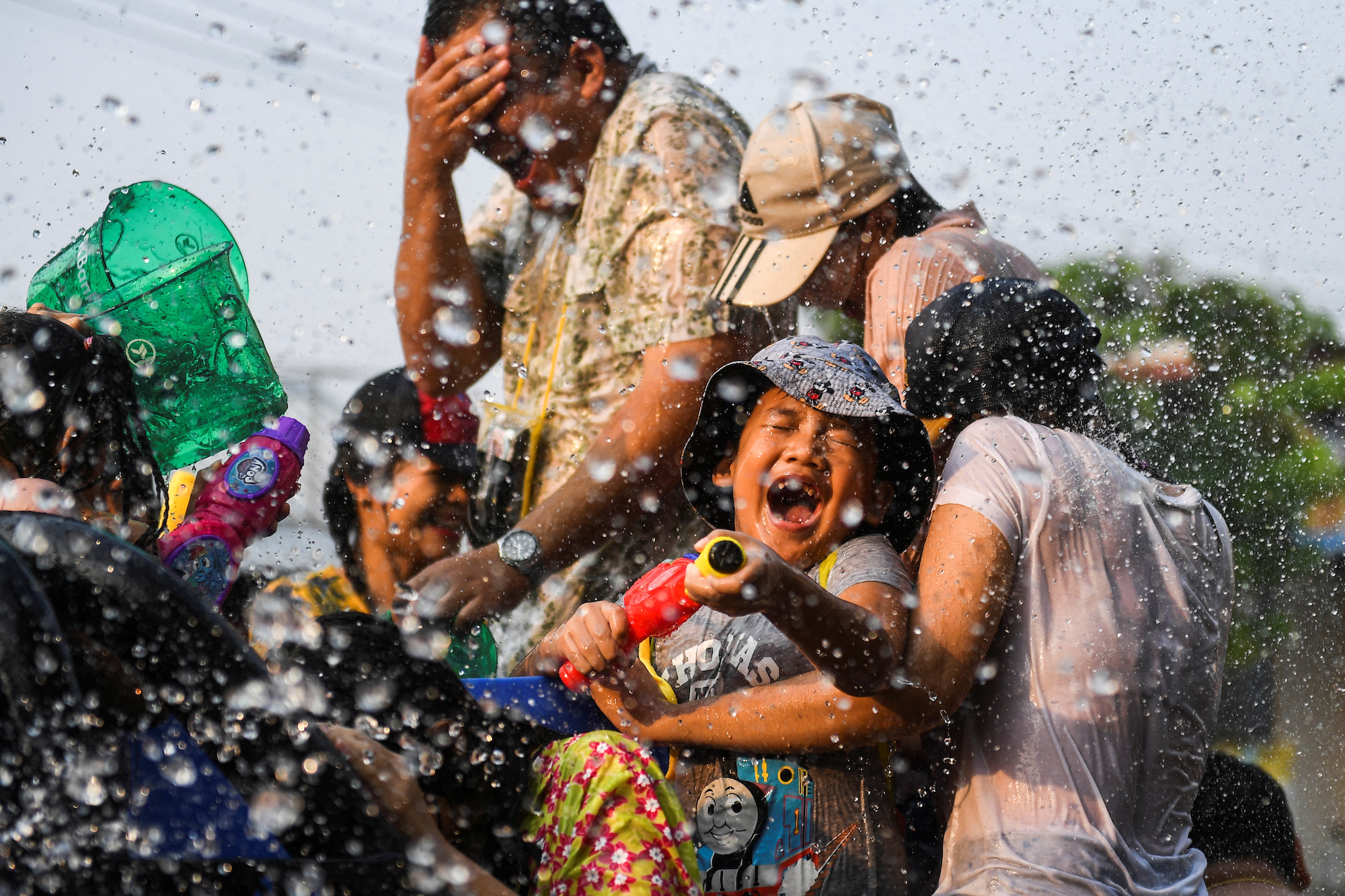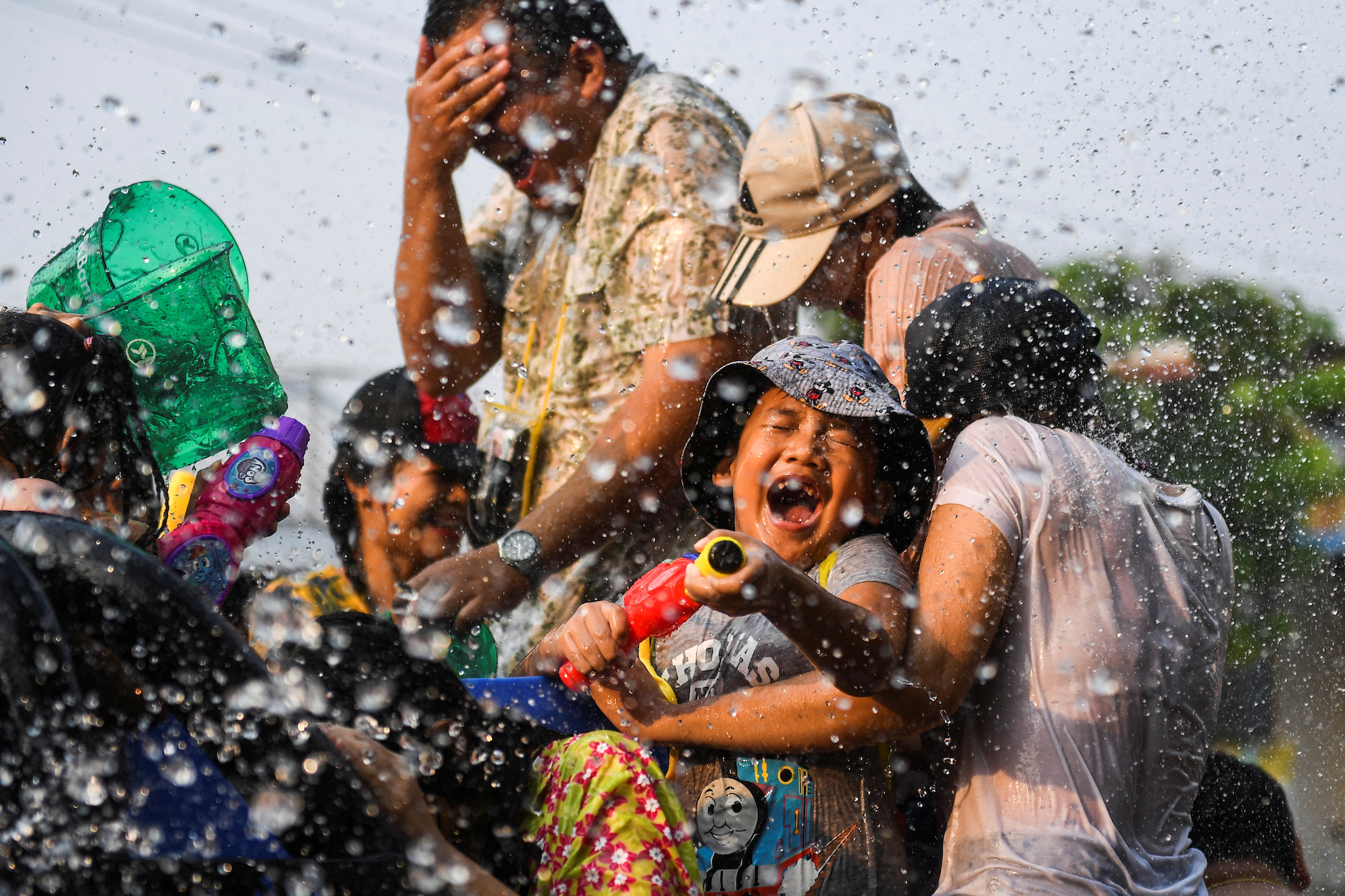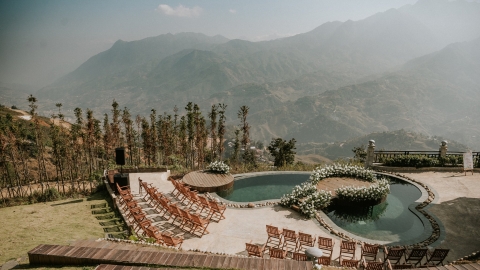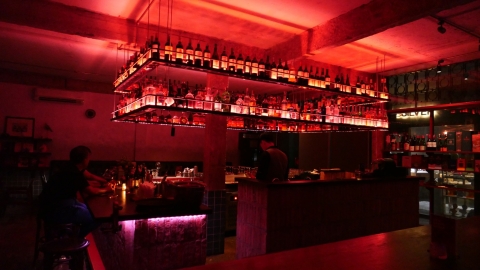After a three-year hiatus due to the pandemic, Thailand's famous Songkran water festival returns this year, lasting three days from April 13-15, and is expected to be a major boost for the country's tourism industry.
Songkran 2023 was celebrated throughout Thailand. However, the water battles were held in specific areas of major cities such as Bangkok, Chiang Mai, Hat Yai, Pattaya, and Phuket... In Bangkok alone, 40 locations were designated for the public water festival.
Considered one of Thailand's most famous festivals, Songkran is renowned for its massive water battles and vibrant street parties. After three long years of restrictions due to the pandemic, this year's Songkran festival attracted a large number of visitors from around the world.
Let's take a look back at this year's vibrant and famous Songkran festival in Thailand:
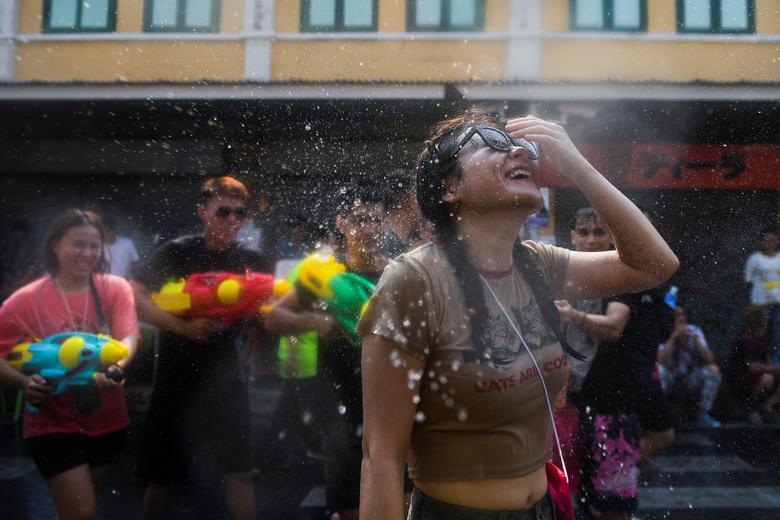
The Songkran festival, held from April 13-15, marks the Thai New Year.
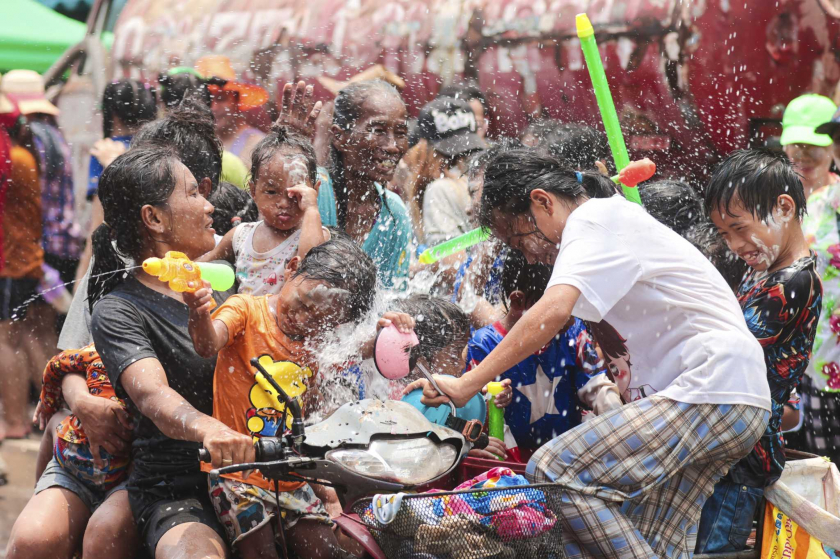
Songkran is a major tourist attraction in Thailand. Bangkok alone has 40 designated locations for the public water festival. On the tourist-friendly Khaosan Road, vendors sell food, clothing, and water guns amidst the scorching heat. The photo shows a family celebrating Songkran in Prachinburi province, east of Bangkok, on April 13th.
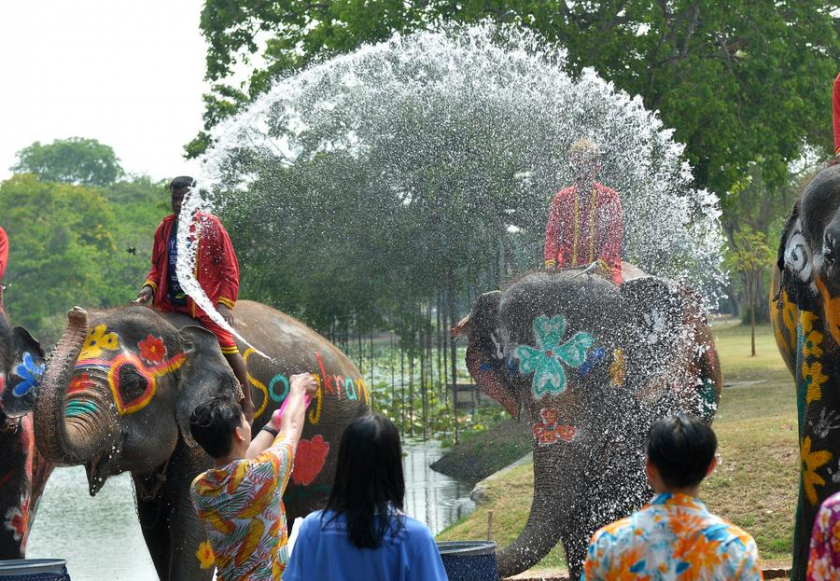
Elephants and tourists splash water on each other during the Songkran celebration in Ayutthaya on April 11.
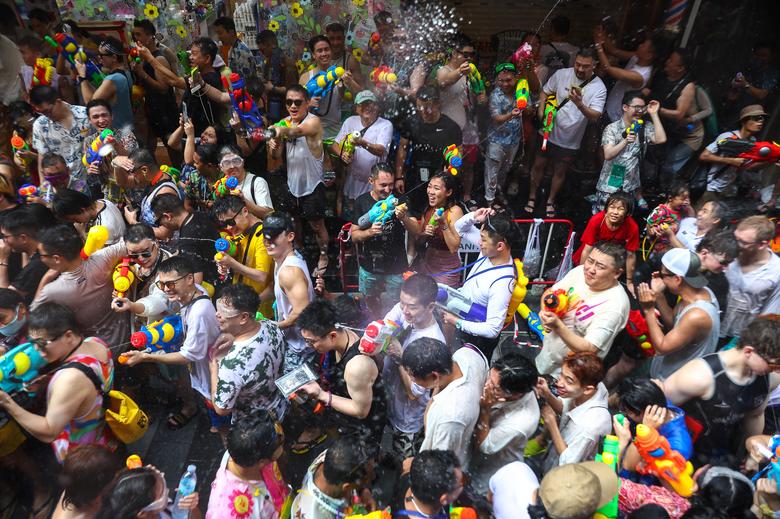
Authorities will be present to ensure the safety of festival attendees and regulate traffic in the area. Police will also conduct checks to ensure that people coming to Khao San Road do not violate general regulations such as carrying weapons, alcohol, wearing revealing or nude clothing, smearing themselves with flour, or using high-pressure water guns.
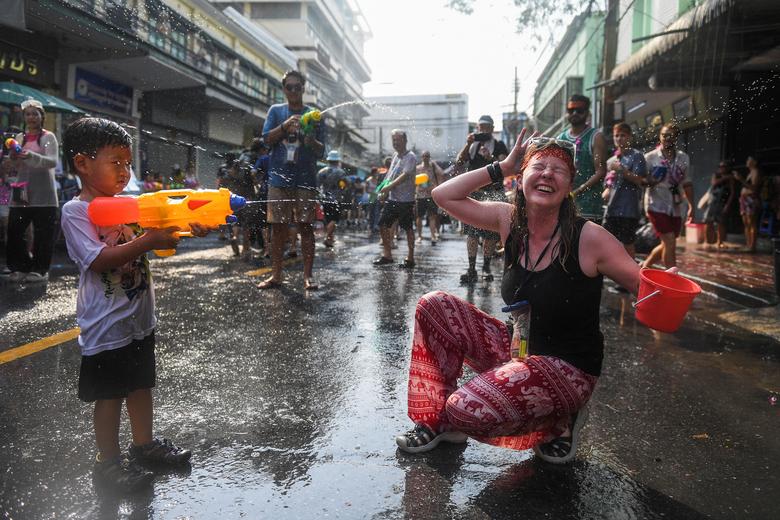
Similar events have been held across the country, including in Chiang Mai. There, the water fight continues despite high levels of air pollution. This phenomenon has plagued northern Thailand for months.
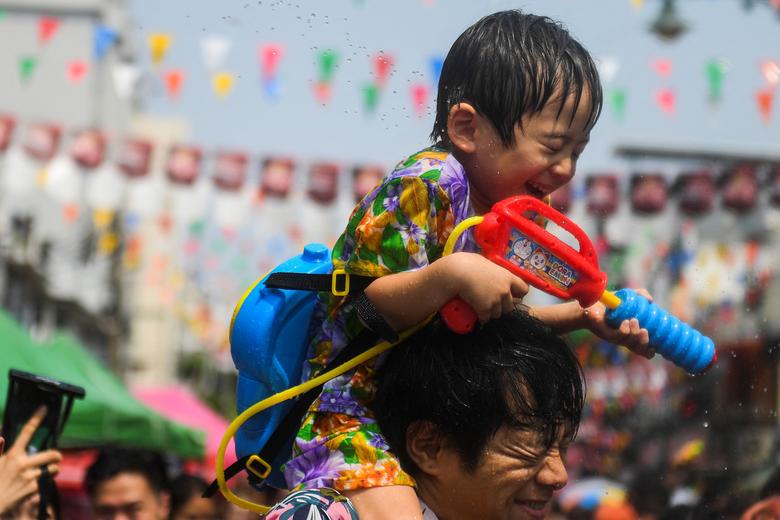
This is considered the first time Songkran has been celebrated "at full capacity" since 2019, when Thai authorities banned or restricted the festival in previous years to prevent the spread of Covid-19.
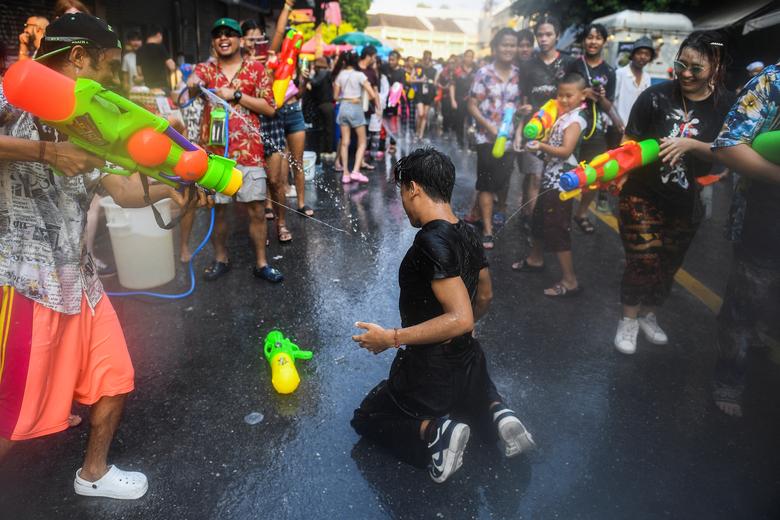
Many people hope that the Songkran celebrations, which take place during Thailand's hottest month, will boost the tourism industry during its post-Covid-19 recovery.
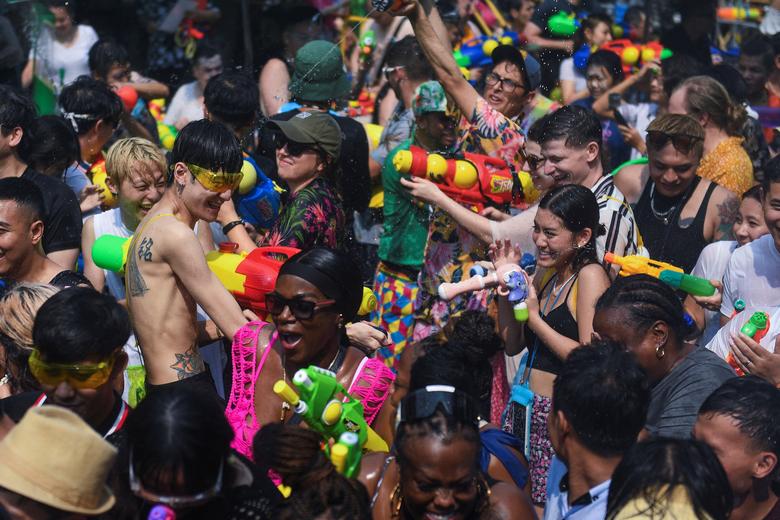
On April 13th, Thai people and tourists alike brought colorful water guns and took to the streets to celebrate the three-day Songkran water festival this year.

Thai Prime Minister Prayuth Chan-ocha unexpectedly joined a water gun fight in the streets during Bangkok's famous water festival on April 14.
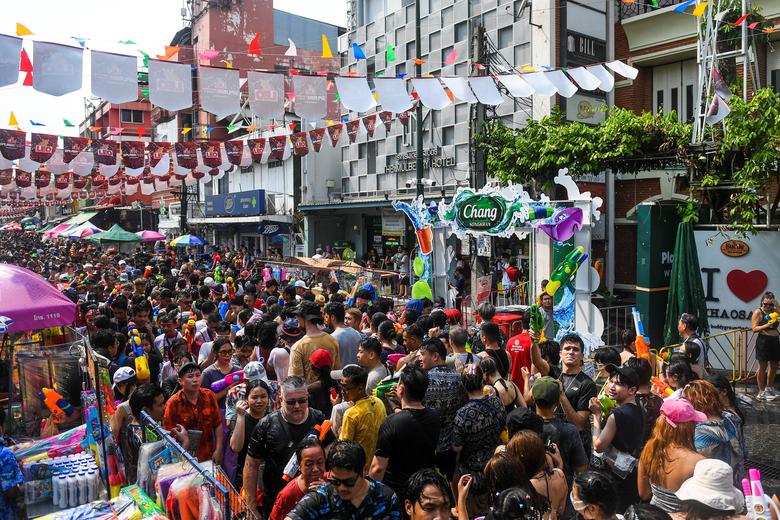
Khao San Road will be closed from noon to 8 pm from April 13-15 to facilitate water-throwing activities. Authorities have allowed businesses to play music and set up designated areas for this activity, but are not permitted to erect stages on the road. The photo shows people splashing water in Chiang Mai.
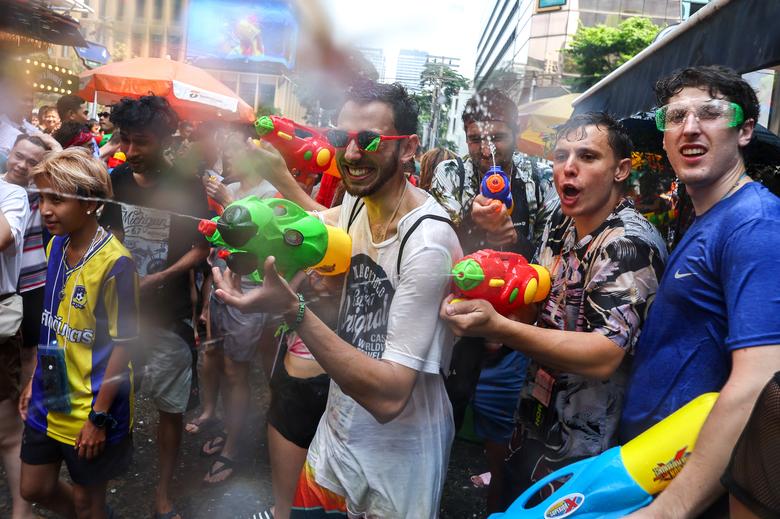
Songkran is also celebrated in Thailand's neighboring countries such as Myanmar, Cambodia, and Laos. This festival usually falls during the hottest time of the year, when temperatures can reach 40 degrees Celsius.
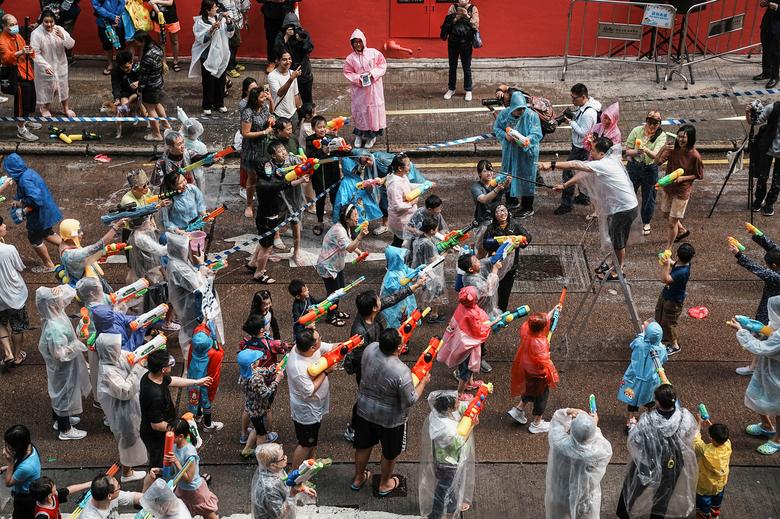
Last year, the "water fight" was officially banned on Khao San Road, a popular party area for foreign tourists, due to the Covid-19 pandemic.
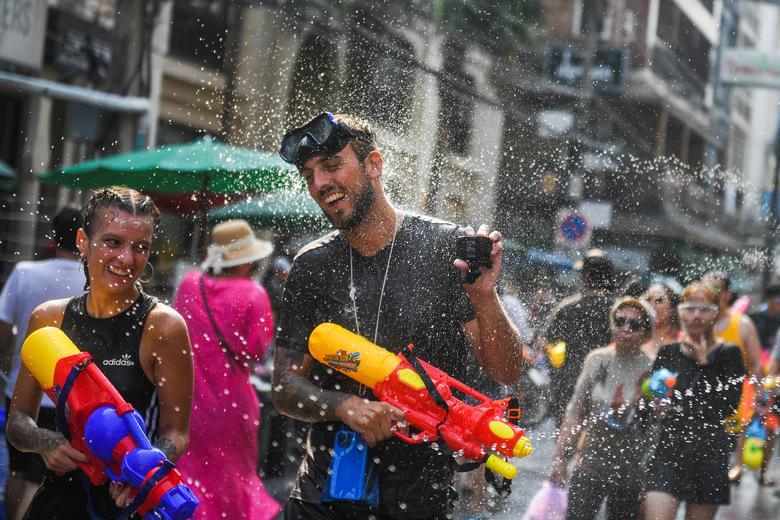
The Tourism Authority of Thailand estimates that this year's Songkran festival will generate more than 18 billion baht (US$530 million) in revenue and attract over 300,000 international tourists during the week-long holiday.
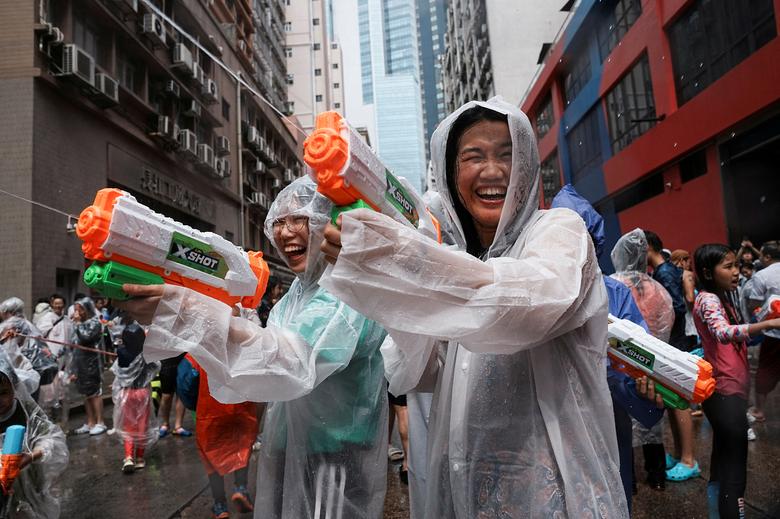

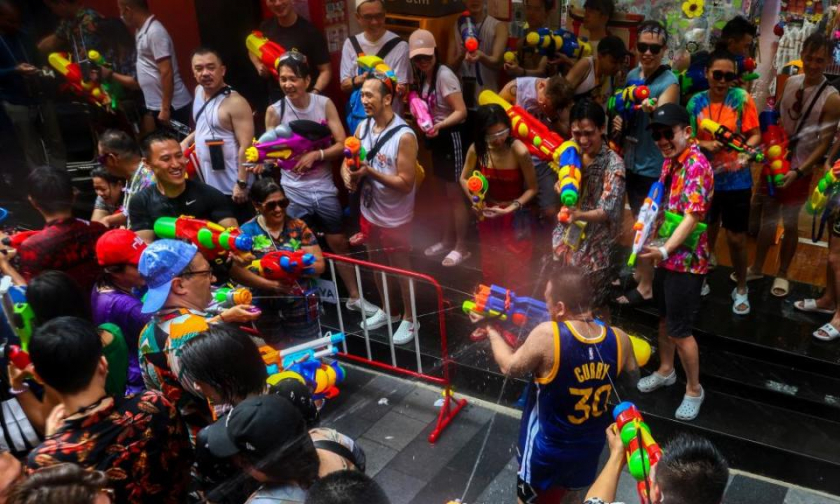
Considered one of Thailand's most famous festivals, Songkran is renowned for its massive water battles and vibrant street parties.
Songkran originates from the ancient Indian festival of Makar Sankriti, which recognizes the celestial nature of the sun. The word Songkran comes from a Sanskrit phrase meaning "through" or "starting anew." Thai people view Songkran as the transition from the old year to the new year.
For Buddhists, this auspicious movement of the celestial bodies marks an important day. In the past, Thai New Year was celebrated on the first day of the first lunar month. Today, the festival is celebrated in the fifth month. The reason for this change relates to the abandonment of previous Thai customs in southern China, whose culture is based on rice farming and Buddhism, which incorporates many astrological beliefs.

 VI
VI EN
EN



